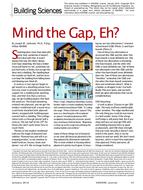Particulate matter (PM) emissions from the poultry industry are a major pollution concern. Development of an effective PM mitigation technology is urgently needed. In this study, the potential of an electrostatic precipitator (ESP) for collecting PM emissions from poultry facilities was evaluated using a commercial ESP unit under simulated laboratory conditions. The effects of operating parameters such as charger voltage, superficial air velocity and PM concentration on the performance of a two-stage plate ESP were evaluated. An empirical model for predicting ESP performance was developed. Preliminary factor screening analyses have shown that charger voltage (7 kV to 10 kV) and superficial air velocity [1 m/s (200 ft/min) to 5 m/s (1000 ft/min)] affect ESP performance significantly while PM concentration (2.5 mg/m3 to 5 mg/m3) had negligible effect (a=0.05). The ESP collection efficiency increased with voltage and decreased with velocity. The relationship between charger voltage and superficial air velocity and PM collection efficiency for particles within size ranges of 0.3-0.5, 0.5-1, 1-5, 5-10, 10-25, >25 , PM1, PM5, and PM10 were apparently nonlinear. The ESP performance approached a peak point at 9 kV charger voltage and 1 m/s air velocity. The optimized operating condition to be used at an actual farm would depend on the desired degree of PM collection. To collect at least 90% of all particles, the operating conditions were 9 kV and 2.5 m s-1. The power consumption of the ESP to collect 90% of the total particles is 90 watts/m2(29 BTU/h/ft2) of duct cross-sectional area. The ESP unit produced very negligible amount of ozone (<50 ppbv) at the extreme operating condition for ozone generation, which is at 10 kV and 1 m/s (200 ft/min) air flow.
Units: Dual
Citation: ASHRAE Transactions, vol. 115, pt. 2, Louisville 2009
Product Details
- Published:
- 2009
- Number of Pages:
- 19
- File Size:
- 1 file , 1.5 MB
- Product Code(s):
- D-LO-09-082


